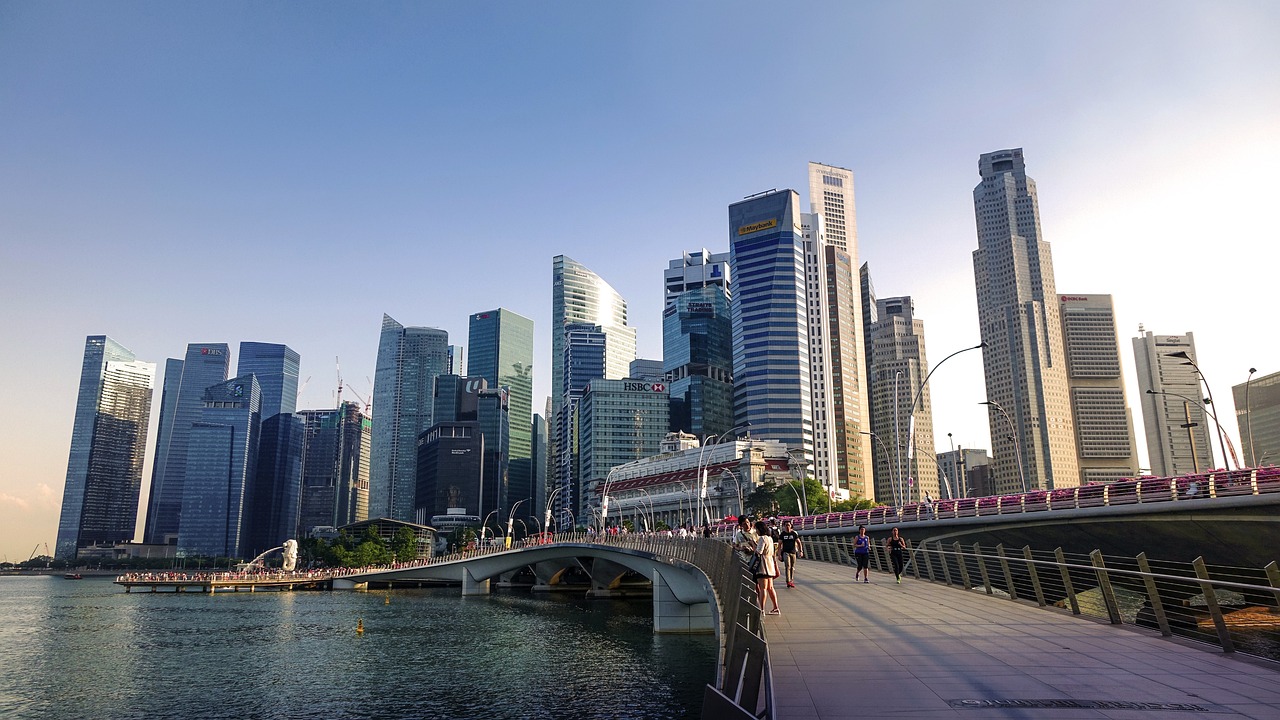Retaining Productivity: Facing Common Challenges in Singapore
Singapore, known as the Lion City, is a bustling metropolis in Southeast Asia. With its strong economy and vibrant business landscape, Singapore faces several challenges when it comes to retaining productivity. In this article, we will explore some of the common challenges faced by businesses and individuals in Singapore and discuss strategies to overcome them.
Work-Life Balance
Maintaining a healthy work-life balance is a challenge faced by many Singaporeans. The fast-paced nature of the city-state often leads to long working hours, leaving little time for personal pursuits and relaxation. To address this challenge, it is important for individuals to prioritize their well-being and set boundaries between work and personal life. Employers can also play a role by promoting flexible work arrangements and encouraging employees to take regular breaks.
- Time Management: Effective time management is crucial for maintaining work-life balance. Singaporeans can benefit from prioritizing tasks, setting realistic goals, and delegating responsibilities where possible.
- Self-Care: Taking care of one’s physical and mental health is essential for productivity. Regular exercise, healthy eating, and sufficient sleep can help individuals recharge and perform better in their professional and personal lives.
- Family Support: Building a support system within the family can help individuals manage their responsibilities effectively. Sharing household chores and responsibilities can alleviate some of the stress associated with work.
High Cost of Living
Singapore is known for its high cost of living, which can put pressure on individuals and businesses. Housing, transportation, and healthcare expenses are some of the major contributors to the high cost of living in Singapore. To mitigate the impact of the high cost of living, individuals and businesses can adopt various strategies.
- Budgeting: Creating a realistic budget and tracking expenses can help individuals manage their finances effectively. Prioritizing needs over wants and seeking cost-saving alternatives can also make a significant difference.
- Transportation: Exploring public transportation options and carpooling can help reduce transportation costs. Singapore has an efficient public transportation system that is well-connected and cost-effective.
- Healthcare: Understanding healthcare subsidies and insurance options can help individuals manage their healthcare expenses more efficiently. Singapore has a comprehensive healthcare system with various schemes and subsidies in place.
Skills Shortage
Singapore’s thriving economy requires a skilled workforce to drive innovation and growth. However, there is a constant challenge of a skills shortage in certain industries. To address this challenge, the government and businesses have implemented various initiatives.
- Skills Training: Encouraging individuals to upskill and reskill themselves through training programs and courses can help bridge the skills gap. The government provides subsidies and grants to support lifelong learning.
- Industry Collaboration: Collaboration between businesses and educational institutions can help align the curriculum with industry demands. This ensures that graduates are equipped with the necessary skills to meet the needs of the job market.
- Talent Attraction: Attracting international talent can help fill the skills gap in Singapore. The government has implemented various schemes to attract foreign professionals and entrepreneurs to contribute to the local economy.
Workplace Diversity
Singapore is a multicultural society with a diverse workforce. Embracing workplace diversity can bring numerous benefits, including increased creativity, innovation, and productivity. However, managing diversity can also pose challenges.
- Inclusion Policies: Implementing inclusive policies and practices can help create a welcoming and supportive work environment for employees from diverse backgrounds. This includes promoting equal opportunities, addressing unconscious biases, and fostering a culture of respect and acceptance.
- Cultural Sensitivity: Encouraging cultural sensitivity and awareness among employees can help prevent misunderstandings and conflicts. Providing diversity training and organizing cultural exchange programs can facilitate better understanding and collaboration.
- Communication: Effective communication is key to managing workplace diversity. Encouraging open dialogue, active listening, and providing platforms for employees to share their perspectives can foster a harmonious and inclusive work environment.
Technology Integration
In today’s digital age, integrating technology into business processes is essential for staying competitive. However, adopting and adapting to new technologies can be challenging for individuals and businesses.
- Training and Education: Providing comprehensive training and education on new technologies can help individuals and businesses embrace digital transformation. This includes upskilling employees and promoting a culture of continuous learning.
- Change Management: Managing change effectively is crucial when implementing new technologies. This involves clear communication, involving employees in the decision-making process, and providing support during the transition.
- Collaborative Tools: Utilizing collaborative tools and platforms can enhance productivity and facilitate seamless communication and collaboration among team members. These tools enable remote work and improve efficiency.
Employee Engagement
Engaged employees are more productive and motivated to contribute to the success of their organizations. However, maintaining high levels of employee engagement can be challenging.
- Recognition and Rewards: Recognizing and rewarding employees’ contributions can boost morale and motivation. This can be done through performance-based incentives, employee appreciation programs, and career development opportunities.
- Communication: Open and transparent communication between management and employees is crucial for fostering employee engagement. Regular feedback, town hall meetings, and employee surveys can help gauge employee satisfaction and address concerns.
- Workplace Well-being: Creating a supportive work environment that prioritizes employee well-being can enhance engagement. This includes promoting work-life balance, providing wellness programs, and offering flexible work arrangements.
Singapore Image 1:

Managing Workplace Stress
Workplace stress can have a significant impact on productivity and overall well-being. Recognizing and managing workplace stress is crucial for individuals and organizations.
- Stress Awareness: Raising awareness about stress and its impact can help individuals identify and manage stressors effectively. This includes providing stress management training and resources.
- Workload Management: Ensuring realistic workloads and setting clear expectations can help prevent excessive stress. Effective delegation and time management strategies can also contribute to reducing work-related stress.
- Support Programs: Implementing employee assistance programs and counseling services can provide employees with the necessary support to cope with stress. Encouraging a culture of work-life balance and self-care can also contribute to stress reduction.
Workplace Safety
Maintaining a safe and healthy work environment is essential for productivity and employee well-being. Singapore has stringent workplace safety regulations in place, but challenges still exist.
- Training and Education: Providing comprehensive safety training to employees can help prevent workplace accidents. This includes training on hazard identification, emergency response, and proper use of equipment.
- Regular Inspections: Conducting regular inspections and audits to identify potential hazards and ensure compliance with safety regulations is crucial. Prompt action should be taken to address any identified issues.
- Employee Involvement: Encouraging employees to actively participate in safety initiatives can foster a culture of safety. This includes reporting hazards, suggesting improvements, and being vigilant about safety practices.
Singapore Image 2:

Talent Retention
Retaining top talent is a challenge faced by many organizations in Singapore. With a competitive job market, companies need to implement effective strategies to attract and retain skilled employees.
- Competitive Compensation: Offering competitive salaries and benefits packages can attract and retain top talent. Regular salary reviews and performance-based bonuses can also contribute to employee retention.
- Career Development: Providing opportunities for career growth and advancement is crucial for retaining employees. This includes offering training programs, mentorship opportunities, and clear progression paths.
- Workplace Culture: Fostering a positive and inclusive workplace culture can enhance employee satisfaction and loyalty. This includes promoting work-life balance, recognizing achievements, and providing a supportive work environment.
Environmental Sustainability
Promoting environmental sustainability is a global priority, and Singapore is no exception. Businesses are increasingly expected to adopt sustainable practices to reduce their environmental impact.
- Energy Efficiency: Implementing energy-efficient technologies and practices can help reduce carbon emissions and lower energy costs. This includes using energy-efficient appliances, optimizing lighting systems, and promoting responsible energy consumption.
- Waste Management: Implementing effective waste management systems and promoting recycling can reduce waste generation and minimize environmental pollution. Businesses can also explore sustainable packaging options.
- Green Initiatives: Encouraging employees to adopt sustainable practices both at work and in their personal lives can create a culture of environmental responsibility. This includes promoting eco-friendly commuting options and organizing sustainability campaigns.
Conclusion
Retaining productivity in Singapore comes with its fair share of challenges. From work-life balance to the high cost of living, skills shortage to workplace diversity, and technology integration to employee engagement, businesses and individuals need to navigate these challenges strategically. By implementing effective strategies and fostering a supportive work environment, Singapore can continue to thrive and maintain its position as a global economic powerhouse.
References
– Ministry of Manpower Singapore: www.mom.gov.sg
– Singapore Economic Development Board: www.edb.gov.sg
– Health Promotion Board Singapore: www.hpb.gov.sg
– National Trades Union Congress: www.ntuc.org.sg
– Singapore Green Building Council: www.sgbc.sg

